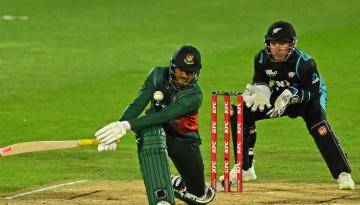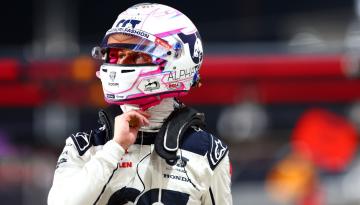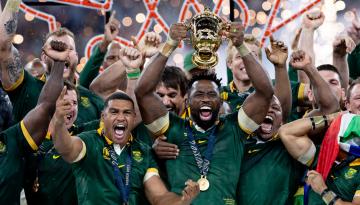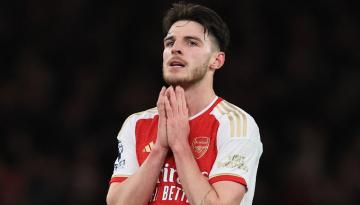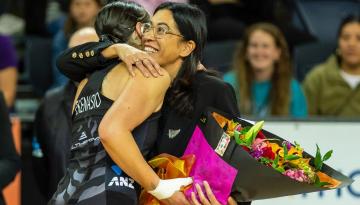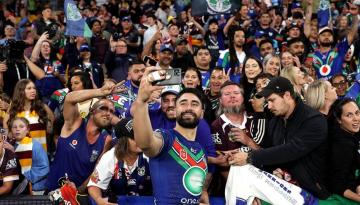‘Don’t know my destiny, but atleast I tried’ Deepika Kumari’s Korea journey to fightback from anonymity
For some of India’s top stars, 2023 was the year when they had to pause, reflect and reboot. In some cases, to recover from injuries; in a few others, to rediscover lost form. All in the hope that when the big day comes, they’ll be ready and recharged for the challenge
Goesan, in the heart of South Korea, is as nondescript a county as they come. It doesn’t have the hustle or the nightlife of Seoul, roughly 200 km away. Neither is it a transport hub like Incheon, nor the tourist magnate that Busan is.

It has, in the last few years, come to be known for something quite unfortunate – as the symbol of South Korea’s shrinking population. A mountain town that, with a third of its population aged above 65 and amidst falling birthrates, is at the risk of vanishing.
But there’s one thing that keeps Goesan-gun going; a global attraction for which the steady stream of visitors hike up the hill hoping to rediscover themselves in a town that advertises itself as the ‘healing hub’ of South Korea.
These aren’t any normal tourists. They are Olympic and World Champion archers who land up there seeking refuge at the Kim Hyung Tak Archery School. If South Korea is the mecca of world archery, Kim Hyung Tak – or ‘coach Kim’, as he is fondly called – is its highest priest.
Last month, Coach Kim had an Indian visitor – Deepika Kumari.
***
Still breathing a little heavy after a training session, Deepika is talking about the ‘biggest sacrifice’ she’s had to make so far in her 29 years on the planet: to leave her 10-month-old daughter at home and travel to Goesan.
“It was a very tough decision,” she says. “But I felt I had no other choice.”
She doesn’t say it but this could well be her last throw of the dice. A sort of all-or-nothing moment that could define the remainder of her career.
For, Deepika knows that if she doesn’t finish in the top eight at the Open Selection Trials in Kolkata next month, her return to the national team will be further prolonged. That could deal another blow to her ambitions of making the cut for the Paris Olympics in July. And Deepika is desperate to be there to make amends for all her previous misses.
There are stories of unfulfilled promises and then there’s the story of Deepika Kumari.
Without a doubt one of India’s finest recurve archers, she is a former world number 1, a former joint world record holder, a multiple world and continental medallist and a National Sports Award winner. But also the one who has fallen consistently short on big stages, the Olympics in particular. At London 2012, she exited in the first round. Four years later in Rio, Deepika bowed out in the Round of 16 and at the postponed Tokyo Games, she lost in the quarterfinals.
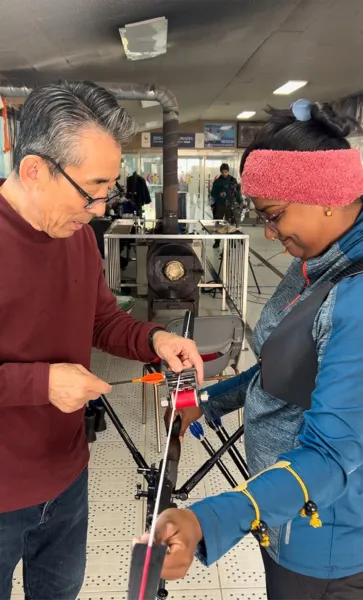 One of the first things Deepika told Coach Kim upon reaching Goesan was, ‘I do not know anything.’
One of the first things Deepika told Coach Kim upon reaching Goesan was, ‘I do not know anything.’
After Tokyo, her career has hit the proverbial nadir. Dropped from the government’s Target Olympic Podium Scheme, which supports an athlete’s training and competition requirements. And dropped from the national team, too, after she was unable to finish in the top eight during the selection trials this year.
“I wanted to return to the national team. That’s why, after I gave birth to my child on December 8 (last year), I was back training on January 10,” she says.
***
She calls it a phase that was ‘beautiful’ but also ‘boring’; a journey in ‘self exploration’ but also one that drove her ‘mad’.
“Sometimes,” Deepika says, “I used to tell Atanu, ‘mujhe teer chalana hai nahi toh mein mental hospital mein bharti ho jaungi.’ (I want to shoot an arrow, else I’ll have to admit myself in a mental hospital).”
Deepika continued shooting until the sixth month of her pregnancy, when things got a little complicated and she had to take a step back from playing sport. For someone who has been on the move for more than half of her life, staying still was an alien, frustrating experience.
“A sportsperson’s life is a constant adventure. You are travelling, competing, dealing with pressure, winning, losing. Something or the other constantly keeps happening,” she says. “And then to sit still suddenly, it was boring.”
Deepika’s first attempt to return to the national team did not go as planned as ‘an error’ in the second selection trial saw her drop out of the top eight, extending her international exile.
Watching her daughter grow up, taking her first steps and ‘learning something new every day’ filled the vacuum created by the sudden absence of travel and competition. At that point, the Paris Olympics might have seemed a little out of sight but they never were out of her mind.
With time running out to get in shape for January’s national team selection trials – the first step towards the Paris Games – she decided to travel to South Korea.
***
One of the first things Deepika told Coach Kim upon reaching Goesan was, ‘I do not know anything.’
To reinvent herself, she first had to give up some of her old habits. “If I have to act illiterate to gain from the knowledge others possess, I am ready to do that. I told him (coach Kim), ‘I don’t know anything, you teach me. Teach me the right thing.’”
When she went in November, the Indian had three-time Olympic gold medallist Park Sung-hyun, regarded as the best female archer of this century, and her husband, Olympic champion and another legend of the sport, Park Kyung-mo, for company.
“After reaching there I got to know that every top player in the world has, at some point, trained at coach Kim’s academy,” says the athlete supported by the Olympic Gold Quest.
The long list comprises many Indians, including the likes of Tarundeep Rai and Deepika’s husband Atanu Das, upon whose insistence she went there.
Kim is hailed as the first coach to lead South Korea’s national team to world archery’s pinnacle. The archers he’s trained have been winning world and Olympic titles since the late 1970s and early 80s, starting with Young Sook Park, who won two gold medals at the World Championship in 1979 followed by the Olympic title that Hyang Soon Seo clinched in 1984.
Coach Kim, the author of the book that’s considered the sport’s bible, is often the first and last word on all things archery. For Deepika, this was apparent within hours of training at his school. “I learnt so many things, some of which no one in India had taught me before,” Deepika says.
She adds: “If I had gone there thinking I knew things, I wouldn’t be able to learn anything new. Had I told him I have won whatever I have because of my existing techniques and methods, then there was no point going all the way there. So, it was essential to go with an open mind and surrender myself to his ideas.”
Deepika found herself in an environment where she could talk about her technical problems and fears while competing openly, ‘without being judged’. In three weeks, Coach Kim worked on her grip, swing, finger placement and form, how she stands while shooting. Those 21 days helped her to adapt to the new techniques, which she now uses in training daily.
“It should hopefully reflect in my scores,” she says.
“Things like setting the anchor. He’d give examples of eating with a knife and fork. The correct way to use them is by holding with just three fingers and relaxing the fourth. He used that parallel with pulling the string,” she says. “We pull the string with three fingers, so what’s the use of the other two? Not much, you’d think. But it’s all about how to keep them relaxed, what position, where… all these little things have an impact on how well you shoot.”
Kim used an app he’d developed to analyse the body balance and movement while shooting, gave her tips to regain strength after childbirth and also conquering her fears.
“We spoke about things that were bothering me mentally. Like getting out of the team, losing… there isn’t any one particular thing,” Deepika says. “He told me just one thing: If I’m out, I’m out. It’s not like you’re dying. There will be another chance.”
Deep down, though, Deepika knows another chance is something she might not get so easily. “I don’t know what’s in my destiny,” she says. “But at least I have tried.”
BOX
Out of the team: In January this year, Deepika returned to domestic competition after maternity break. Already dropped from the Target Olympic Podium Scheme after the Tokyo Olympics, Deepika could not finish in the top 8 at the selection trials. Thus, one of India’s most decorated recurve archers found herself out of the national team.
Reboot: She spent the whole year on the fringes before winning two gold and one silver medal at the National Games in Goa last month. Soon after, she went to South Korea, where she trained under legendary coach Kim Hyung-Tak at his school in Goesan. Deepika says Kim has worked on multiple facets of her game, including form, posture and grip, which should improve her scores.
What next: The first selection trials will be held in January and archers who finish in the top 8 will be called to the national camp. The teams for international competitions, including Olympic qualifying events, will be selected from these eight players. It means if she does not make it to the top 8, her Olympic ambitions will take a severe hit.
Disclaimer: The copyright of this article belongs to the original author. Reposting this article is solely for the purpose of information dissemination and does not constitute any investment advice. If there is any infringement, please contact us immediately. We will make corrections or deletions as necessary. Thank you.
